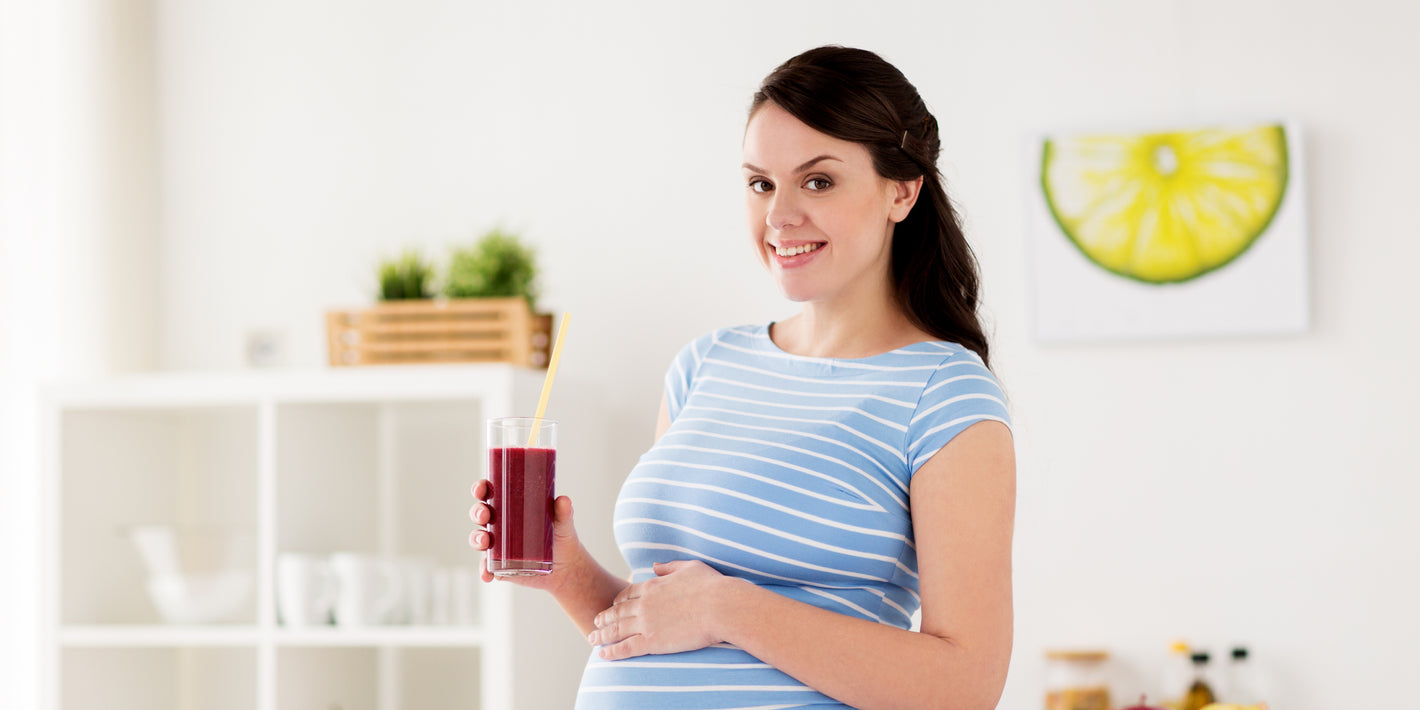
Stay Hydrated for a Healthy Pregnancy
Introduction
Navigating through pregnancy is akin to embarking on a profoundly personal journey, one filled with its joys, challenges, and an ever-pressing emphasis on health and nutrition. Among the myriad pieces of advice and prenatal care tips, the importance of staying hydrated is often echoed yet seldom dissected in detail. Hydration during pregnancy transcends mere advice—it's a cornerstone of health, pivotal not just for the expectant mother but also for the developing fetus nestled within. Water, the essence of life, plays an integral role in the formation of the placenta and the amniotic sac, critical components in nutrient delivery and fetal protection. However, despite its undeniable importance, many pregnant women find themselves grappling with questions: How much water is enough? What are the signs of dehydration? Does hydration influence pregnancy outcomes? This comprehensive exploration delves deep into the significance of hydration, armed with the goal of illuminating the path to a hydrated, healthy pregnancy. Through debunking myths, presenting scientific insights, and offering practical hydration strategies, this article aims to be a beacon for expecting mothers, guiding them towards optimal health for themselves and their unborn children.
The Importance of Water During Pregnancy

Understanding Water's Role: Water is not merely a thirst quencher—it's a vital participant in the symphony of pregnancy. It aids in forming the placenta, the baby's lifeline to the mother's nourishment, and the amniotic fluid, the protective embrace around the fetus. These fluids facilitate the exchange of nutrients and oxygen, making hydration a key player in fetal development. Moreover, water assists in flushing out toxins and waste from the body, reducing the risk of urinary tract infections, which are more common during pregnancy.
Supporting Systems: Beyond fetal development, water supports the expansive changes a woman's body undergoes during pregnancy. Increased blood volume, which rises by up to 50% to support the growing fetus, demands adequate hydration. Water also softens the body's tissues, allowing them to expand as the baby grows, and helps in mitigating constipation, a frequent pregnancy complaint, by maintaining bowel regularity.
How Much Water Should Pregnant Women Drink?
Daily Recommendations: The National Academies of Sciences, Engineering, and Medicine suggest that pregnant women consume about 10 cups (2.3 liters) of fluids daily. However, this is a baseline that doesn't account for individual variations such as activity level, climate, and the mother's body size. An easy-to-remember guideline is to drink whenever you're thirsty and to observe the color of your urine—aiming for a light yellow, which indicates proper hydration.
Adjusting for Needs: It's also important to adjust fluid intake based on physical activity and weather conditions. Pregnant women should increase their water intake during hot weather or when engaging in physical activity to compensate for increased sweating. Moreover, during the later stages of pregnancy, the body may require additional fluids to support the significantly expanded blood volume and to alleviate swelling, a common symptom due to water retention.
Signs of Dehydration to Watch Out For
Recognising Symptoms: Dehydration during pregnancy can be subtle, but it's crucial to be vigilant for its signs. Symptoms may include headaches, dizziness, a dry or sticky mouth, and lethargy. Severe dehydration can lead to more alarming symptoms, such as the absence of urination for more than a few hours, dark-colored urine, and rapid heartbeat or breathing. These signs underscore the body's urgent need for water.
Potential Complications: Dehydration can lead to complications such as neural tube defects, low amniotic fluid, and even preterm labor. It's crucial for pregnant women to listen to their bodies and respond promptly to thirst signals. Staying well-hydrated supports not just the mother's health, but also the optimal development of the baby. If any symptoms of dehydration are experienced, it's advisable to increase fluid intake and consult a healthcare provider if symptoms persist or worsen.
Hydrating Foods for Pregnancy
Nutrient-Rich Hydration Sources: In addition to drinking water, pregnant women can turn to hydrating foods as a delicious and nutritious way to meet their fluid needs. Fruits and vegetables high in water content, such as cucumbers, celery, watermelon, strawberries, and oranges, not only contribute to hydration but also provide essential vitamins and minerals. These foods can aid in digestion, promote skin health, and offer a refreshing alternative to plain water.
Incorporating Hydrating Foods into Meals: Adding these hydrating foods to daily meals is simple and effective. For example, starting the day with a smoothie made from yogurt and water-rich fruits can boost hydration from the morning. Salads topped with cucumbers and tomatoes, snacking on watermelon or berries, and incorporating soups and broths into the diet are other ways to increase fluid intake through food. These foods are not only hydrating but also add variety and flavor to the pregnancy diet, making it easier and more enjoyable to stay hydrated.
The Role of Hydration in Preventing Pregnancy Complications
Mitigating Common Complications: Adequate hydration is pivotal in preventing several common pregnancy complications. For instance, hydration plays a crucial role in reducing the risk of urinary tract infections (UTIs), which are more prevalent during pregnancy. By flushing out the urinary tract, water helps prevent the bacteria that cause UTIs from taking hold. Additionally, staying hydrated can alleviate constipation, a frequent issue during pregnancy, by softening stools and promoting regular bowel movements.
Reducing the Risk of Serious Conditions: Beyond these common concerns, proper hydration may also lower the risk of more severe complications such as preeclampsia and gestational hypertension. These conditions are linked to the body's blood volume and pressure, both of which are influenced by hydration levels. While hydration alone cannot prevent these conditions, it can be a part of a holistic approach to maintaining a healthy pregnancy.
Hydration and Its Impact on Maternal Health
Supporting Overall Well-being: The benefits of hydration extend beyond the prevention of complications, playing a significant role in the overall health and comfort of expectant mothers. Adequate fluid intake can help manage swelling (edema) by maintaining proper blood circulation and preventing excessive water retention. Additionally, staying hydrated can enhance skin elasticity, which may reduce the risk of stretch marks as the belly expands.
Energy Levels and Mood: Hydration also influences energy levels and mood. Dehydration can lead to fatigue, lethargy, and irritability, making it more challenging to cope with the demands of daily life and pregnancy. By ensuring sufficient fluid intake, pregnant women can help maintain their energy levels and promote a more positive mood, contributing to an overall sense of well-being during this critical period.
Creative Ways to Stay Hydrated
Beyond Plain Water: While water is the best source of hydration, drinking enough each day can sometimes feel monotonous. Incorporating variety can make hydration more appealing. Herbal teas, decaffeinated to avoid excess caffeine, can provide warmth and comfort, especially in cooler months. Infused waters, with slices of fruits, cucumber, or herbs, offer a refreshing and flavorful alternative to plain water.
Hydration Hacks: For those who find it challenging to drink large amounts of water, setting reminders to drink at regular intervals or using a marked water bottle to track intake can be helpful strategies. Experimenting with sparkling water or adding a splash of juice for flavor can also make meeting hydration goals more enjoyable. These strategies not only help maintain adequate hydration but also enhance the pregnancy experience by making health habits more engaging and varied.
Exercise and Hydration During Pregnancy
Balancing Physical Activity with Hydration: Physical activity is beneficial during pregnancy, aiding in maintaining fitness, reducing stress, and preparing the body for childbirth. However, as exercise increases fluid loss through sweat, it's crucial to adjust hydration accordingly. Pregnant women should aim to drink water before, during, and after exercise to prevent dehydration. A good practice is to drink at least one cup (240 ml) of water 20-30 minutes before exercising, sip water throughout the workout, and replenish fluids after finishing.
Tailoring Hydration to Exercise Intensity: The type and intensity of exercise, along with environmental conditions, will influence hydration needs. For light activities such as walking or prenatal yoga, regular sips of water might suffice. However, for more vigorous activities or workouts in hot weather, increasing water intake is essential to compensate for the increased sweat loss. Listening to the body's thirst signals and monitoring for signs of dehydration can help ensure that both mother and baby remain hydrated and healthy during physical activity.
Understanding Electrolytes and Pregnancy
The Role of Electrolytes in Hydration: While water is vital for hydration, electrolytes such as sodium, potassium, and magnesium play a crucial role in maintaining the body's fluid balance. During pregnancy, the body's need for electrolytes increases to support the expanded blood volume and the growing fetus. Electrolytes help regulate nerve and muscle function, balance blood acidity and pressure, and rebuild damaged tissue. Therefore, maintaining a proper balance of electrolytes is essential for both hydration and overall health during pregnancy.
Sources of Electrolytes for Pregnant Women: Pregnant women can obtain electrolytes from a balanced diet that includes a variety of foods. Leafy greens, bananas, avocados, sweet potatoes, and coconut water are excellent sources of potassium. Dairy products, nuts, and seeds can provide calcium and magnesium. While it's important to consume enough sodium, especially since the body's blood volume increases significantly during pregnancy, it's equally important to avoid excessive sodium intake to prevent swelling and high blood pressure. In some cases, especially when dealing with nausea or vomiting, an electrolyte-replenishing drink may be recommended by a healthcare provider to ensure electrolyte balance.
Hydration Myths and Facts for Pregnant Women
Debunking Common Myths: Pregnancy is often accompanied by a plethora of advice, some of which can be misleading, especially regarding hydration. For instance, a common myth is that too much water can lead to excessive amniotic fluid or swelling. However, the truth is that staying properly hydrated is crucial for maintaining amniotic fluid levels and can actually help reduce swelling by flushing excess sodium and toxins from the body.
Emphasising Evidence-Based Facts: It's also important to address misconceptions about caffeine and hydration. While it's recommended to limit caffeine intake during pregnancy, moderate consumption (about 200 mg per day) is considered safe. Caffeinated beverages can contribute to daily fluid intake, but they shouldn't be the primary source of hydration. Water, milk, and herbal teas are better options for ensuring both mother and baby receive the fluids they need without the potential risks associated with excessive caffeine.
Summary
- Importance of Hydration: Adequate hydration is crucial for fetal development, forming the placenta and amniotic fluid, aiding digestion, preventing infections, and supporting the mother's expanding blood volume.
- Daily Water Intake: Pregnant women are advised to consume about 10 cups (2.3 liters) of fluids daily, adjusting based on activity level, climate, and individual health needs. The color of urine can be a helpful hydration indicator.
- Signs of Dehydration: Symptoms include headaches, dizziness, dry mouth, and dark-colored urine. Severe dehydration can lead to significant complications and should be addressed promptly.
- Hydrating Foods: Incorporating water-rich fruits and vegetables like cucumbers, strawberries, and watermelon into meals can boost hydration and provide essential nutrients.
- Preventing Complications: Proper hydration can help reduce the risk of urinary tract infections, constipation, and potentially more serious conditions like preeclampsia and gestational hypertension.
- Impact on Maternal Health: Hydration supports overall well-being, including managing swelling, enhancing skin elasticity, and maintaining energy levels and mood.
- Creative Hydration Strategies: Beyond plain water, pregnant women can stay hydrated with herbal teas, infused waters, and consuming hydrating foods. Setting reminders and using a water bottle with volume markings can help meet daily fluid intake goals.
- Exercise and Hydration: Adjusting water intake before, during, and after exercise is essential to compensate for increased fluid loss through sweat, especially in hot weather or during vigorous activities.
- Electrolytes: Maintaining a balance of electrolytes, such as sodium, potassium, and magnesium, is important for hydration and overall health. These can be obtained from a balanced diet.
- Myths vs. Facts: Debunking myths such as excessive water leading to too much amniotic fluid or swelling. Moderate caffeine consumption is safe but should not be relied upon for hydration.







